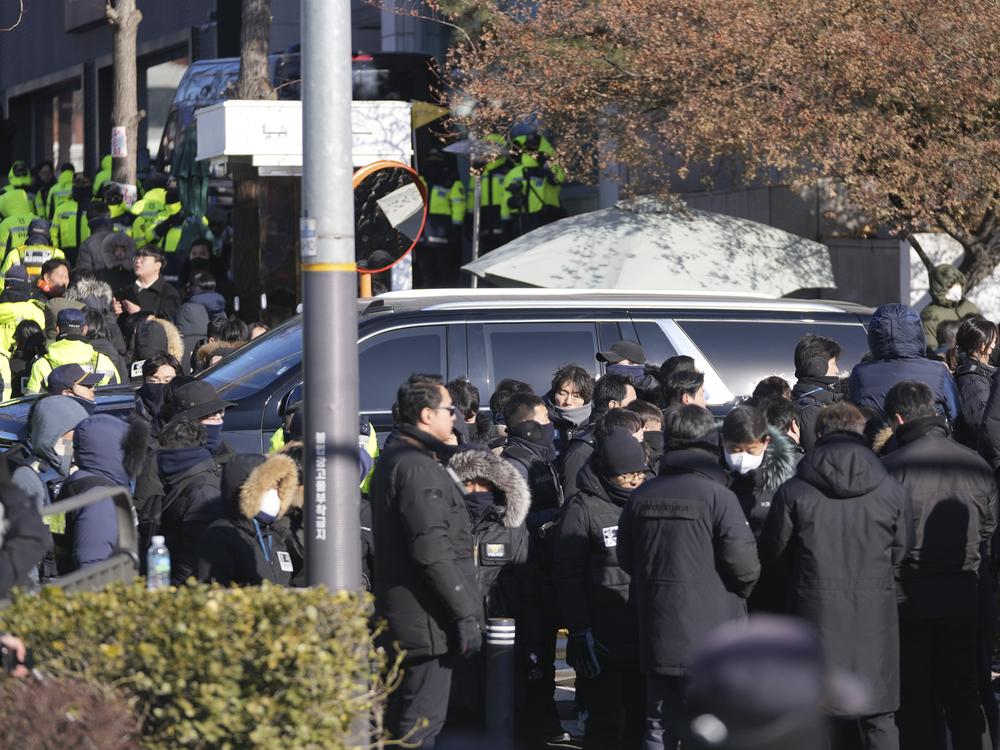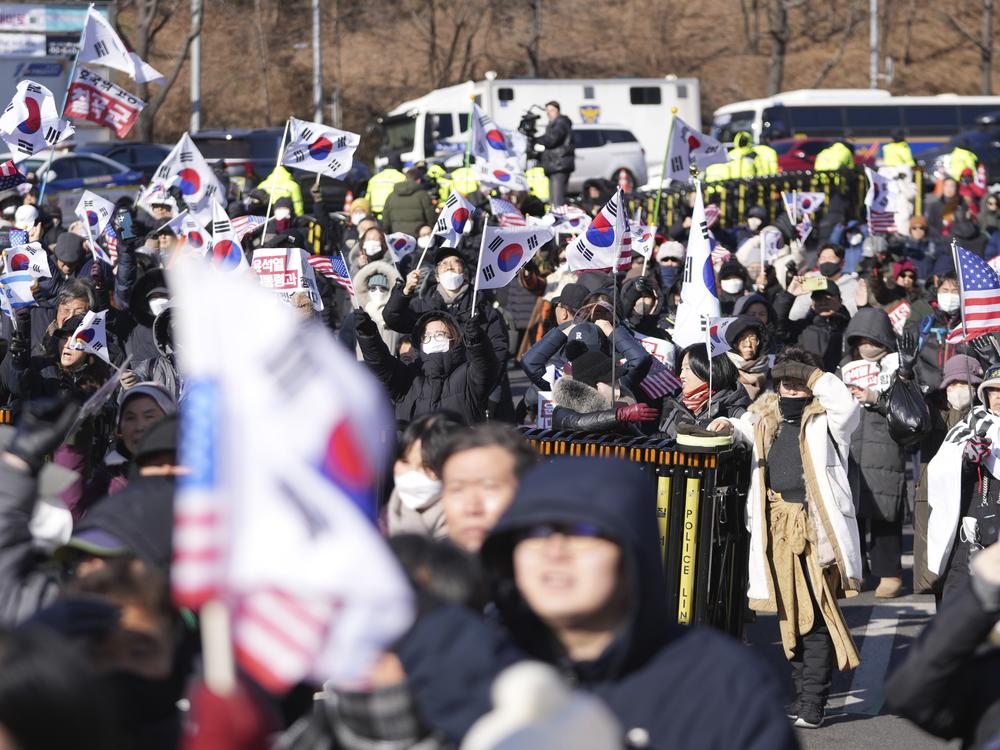Section Branding
Header Content
South Korean President Yoon detained after standoff over martial law decree
Primary Content
SEOUL, South Korea — South Korea's impeached president Yoon Suk Yeol was apprehended for questioning over insurrection charges, a month and a half after he briefly imposed martial law.
He is the country's first sitting president to be detained.
With his detention, investigators turned the page on weeks of anxiety about potential clashes between the presidential security detail and the police following the issuance of Yoon's warrant.
But the political chaos provoked by the Dec. 3 martial law declaration is expected to continue, as Yoon and his ruling party supporters remain defiant against the insurrection charges.
Yoon argued the martial law declaration was necessary because the opposition's "legislative dictatorship" paralyzed state affairs and disturbed social order.
In a video message released after his detention, the president called the investigation and the warrant "illegal" and said he agreed to go with the law enforcement only to prevent violent confrontation.
The first attempt to detain Yoon by the Corruption Investigation Office for High-ranking Officials (CIO) and police on Jan. 3 ended in a failure after a five-hour standoff with the president's security detail. The CIO's Chief Prosecutor Oh Dong-woon later told the parliamentary judiciary committee that his staff had not expected "organized resistance" by armed security agents and felt "psychological and physical pressure."
The CIO, which is leading a joint investigation on Yoon with the police and the military, beefed up its preparations ahead of the second attempt, mobilizing 3,000 riot police, 1,000 detectives and anti-corruption investigators in their pre-dawn operation. It also issued warnings to the security detail that they too can be arrested for obstructing public duties and, if convicted, lose their job and pensions.
After dispersing dozens of ruling party lawmakers blocking the gate of the presidential residence, police and investigators used ladders to climb over buses parked behind the gate as barricades.
Some police officers tried to enter from the rear of the residence through a mountain hiking trail.
Unlike the first attempt, no presidential security agents were seen trying to stop law enforcement.
After more than two hours of negotiation inside the presidential residence between Yoon's representatives and law enforcement, a presidential convoy left the compound.
Demonstrators gathered outside the presidential compound
When the CIO confirmed Yoon's detention, cheers broke out among protesters who had been urging his arrest in the freezing cold.
"I haven't lived for long, but this is the happiest I've been in my life," says Choi Haysu, a 20-year-old college student from the southeastern city of Busan. Choi says she arrived in the area the day before and spent the night on the street.
When Yoon declared martial law last month, Choi says she searched for a protest to go to the next day, comparing it to democracy activists clashing with militant police during the 1980s. "If the National Assembly had failed to stop martial law troops," she says, "I feared the kind of violent crackdowns I saw in history books would happen."
Young South Koreans born after the country's military dictatorships have actively participated in recent protests demanding Yoon's ouster. Many say they took for granted South Korea's stable democracy before the martial law declaration.
"Most people live with constant anxiety, checking every morning if Yoon Suk Yeol has been arrested overnight or if any other situation has happened," says Min So Won, 24, who protested outside the presidential residence on Wednesday.
In a recent Gallup poll, 75% of South Korean respondents between ages 18 and 29 said they support Yoon's impeachment. The National Assembly passed the impeachment motion on Dec. 14, and the Constitutional Court began formal hearings this week to decide whether to formally remove him from office.
Older South Koreans, however, are more sympathetic to Yoon. In the same poll, 36% of people ages 70 or older supported the impeachment.
Jeong Hyung-mok, a 76-year-old retired teacher, took part in the anti-impeachment protest also happening outside the presidential residence on Wednesday. She says she fears South Korea's government would collapse if Yoon is impeached.
"The president is the pillar that supports our country and the vanguard of liberal democracy," Jeong says, calling the leader of the liberal opposition a "communist."
Speaking to reporters outside the residence, lawmaker Kim Gi-hyeon of the ruling People Power Party also argued the country's liberal democracy and rule of law is at stake, repeating Yoon's claims about the illegality of the investigation.
But the courts have dismissed objections raised by Yoon's lawyers and supporters over the detention warrant.
The CIO can hold the president for interrogation for 48 hours. The agency is then expected to file for an arrest warrant, which would grant the office and the prosecution up to 20 days to question him.




